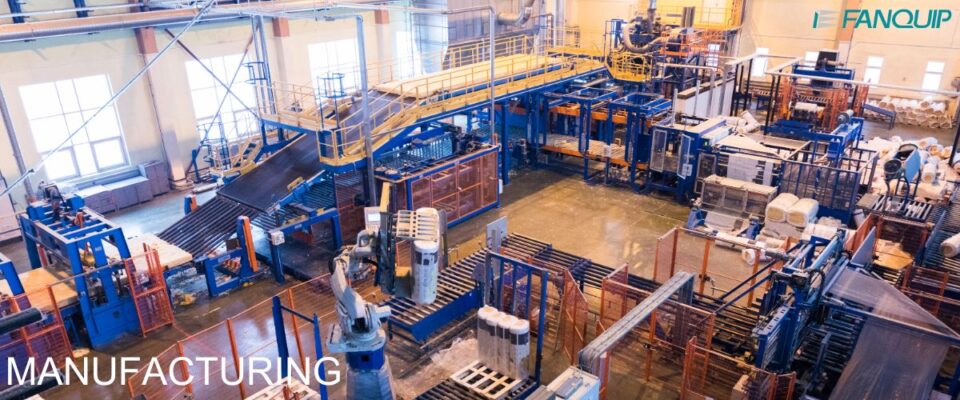Maintaining optimal humidity levels in manufacturing industries in Australia is crucial for product quality, machinery performance, and worker comfort. Different industries have varying requirements based on the nature of their processes and materials. Here are some key industries and their recommended humidity levels in Australia, along with relevant references:
1. Electronics Manufacturing
- Optimal Humidity Level: 30-50%
- Reason: Low humidity reduces the risk of static electricity, which can damage sensitive electronic components. However, too low humidity can lead to issues with dry air, such as brittle materials and increased dust.
- Reference: Standards Australia AS/NZS IEC 61340
2. Pharmaceutical Manufacturing
- Optimal Humidity Level: 40-60%
- Reason: Proper humidity levels help maintain the integrity of hygroscopic materials and prevent microbial growth. This ensures the quality and stability of pharmaceuticals.
- Reference: Therapeutic Goods Administration (TGA) Good Manufacturing Practice
3. Food and Beverage Processing
- Optimal Humidity Level: 50-60%
- Reason: Maintaining appropriate humidity helps in preventing spoilage and contamination. It also supports the consistency and texture of food products.
- Reference: Food Standards Australia New Zealand (FSANZ) Food Standards Code
4. Textile Manufacturing
- Optimal Humidity Level: 60-70%
- Reason: High humidity levels are necessary to keep fibres pliable and reduce static electricity. This improves the efficiency of weaving and reduces breakage.
5. Paper and Printing Industry
- Optimal Humidity Level: 45-55%
- Reason: Consistent humidity prevents paper from curling, wrinkling, or becoming too brittle. It also ensures high-quality printing and ink adhesion.
6. Automotive Manufacturing
- Optimal Humidity Level: 35-50%
- Reason: Optimal humidity is essential to maintain material integrity and prevent corrosion of metal parts. It also helps in the curing processes of paints and adhesives.
7. Chemical Manufacturing
- Optimal Humidity Level: 30-50%
- Reason: Precise control of humidity levels is crucial to prevent chemical reactions that can occur due to moisture. It ensures product quality and safety.
8. Woodworking and Furniture Manufacturing
- Optimal Humidity Level: 35-55%
- Reason: Proper humidity levels prevent wood from warping, cracking, or splitting. It maintains the structural integrity and appearance of wooden products.
9. Plastics Manufacturing
- Optimal Humidity Level: 40-60%
- Reason: Consistent humidity helps in reducing static electricity, which can affect the quality of plastic moulding and extrusion processes.
10. Aerospace Manufacturing
- Optimal Humidity Level: 30-50%
- Reason: Controlling humidity is crucial to prevent corrosion and maintain the precision of aerospace components. It also supports the proper curing of composite materials.
General Recommendations:
- Monitoring and Control: Use humidifiers / dehumidifiers and industrial fans as needed to maintain consistent humidity levels.
- Regular Maintenance: Ensure HVAC systems are regularly maintained to avoid fluctuations in humidity.
- Employee Comfort: Consider the comfort of workers, as extreme humidity levels can affect health and productivity.
By adhering to these guidelines, manufacturing industries in Australia can optimise their processes, enhance product quality, and ensure a comfortable working environment for employees.
Related blog: Ventilation Issues in Manufacturing
Comprehensive Ventilation Solutions from Fanquip
At Fanquip, we offer a diverse range of ventilation solutions tailored for various industrial and commercial applications. Our robust industrial fans and advanced ventilation systems are specifically designed to address humidity and moisture issues across different sectors, including manufacturing, food processing, and factories.
By maintaining optimal humidity levels, our products help improve product quality, enhance machinery performance, and ensure worker comfort. Whether it’s reducing static electricity in electronics manufacturing, preventing microbial growth in pharmaceuticals, or maintaining the consistency of food products, Fanquip’s solutions are engineered to meet the unique needs of each industry. Trust Fanquip to provide reliable and efficient ventilation solutions that support your operational excellence and environmental control.
